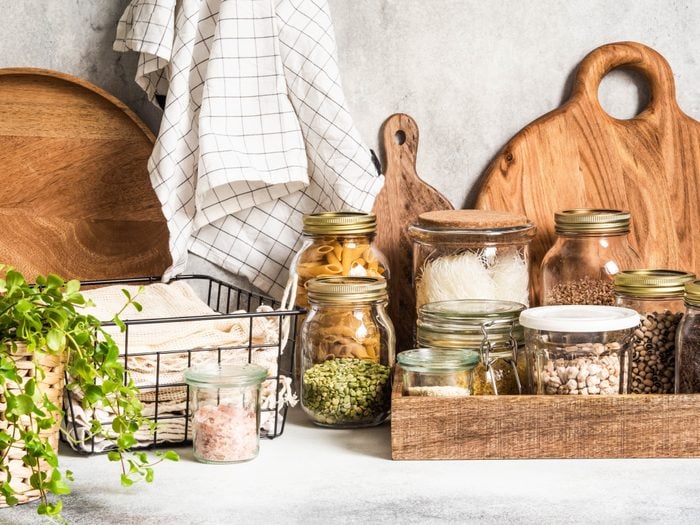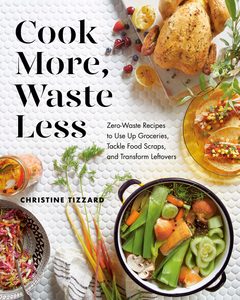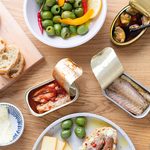10 Easy Ways to Cut Down on Food Waste in the Kitchen

Find yourself with too many food scraps and leftovers? Follow author Christine Tizzard's tips for a zero-waste kitchen.
Food waste is a serious problem. In Canada, the average household spends $1,766 on uneaten food each year. But that’s not the only problem: Food that isn’t eaten ends up in landfills and creates methane, which is a powerful greenhouse gas.
Below is an excerpt from Cook More, Waste Less, where author Christine Tizzard shares ten ways to cut down on food waste in your home.
First in, first out
This is one of the first rules you learn in chef school: Eat what was bought earliest and has the shortest shelf life remaining. In other words, most perishable foods get eaten first.
Revive bendy vegetables
Firm up limp veggies like celery or broccoli in a five-minute cold water bath.
Rethink overcooked vegetables
Don’t despair if you overcook carrots—overly soft vegetables make for an easy and tasty mash or purée.
Get soup-ing and sauce-ing
Leftover vegetables make great soups and sauces. Just blend them with a cup of a liquid, like coconut milk, along with some stock and a little seasoning.
Peeling is overrated
Edible thin peels like on potatoes really just need a good scrub. And you can add more fibre and nutrients to your diet by leaving these on.
Think big picture
Use the overlooked tops, stems, peels, skins and rinds of fruits and vegetable, too.
Re-crisp stale chips and crackers
Pop stale snacks like chips and crackers in your oven at 350°F for a few minutes until toasty to bring back their crunch.
Save the bones
Gather up leftover bones and store them in a container in the freezer until you have enough to make a big batch of stock. Why toss such a valuable source of essential amino acids, minerals and collagen?
Utilize fat
Store leftover bacon fat or pan drippings in a sealed container in your fridge for use throughout the week. Bacon fat or schmaltz (rendered chicken fat) can be used instead of oil or butter.
Plan your portions
Knowing how much to buy and cook can be daunting, but it goes a long way to reduce waste. There are many free online portion planning tools and other helpful resources, such as from Love Food Hate Waste Canada.

Excerpted from Cook More, Waste Less by Christine Tizzard Copyright © 2021 Christine Tizzard. Photography © Reena Newman. Published by Appetite by Random House®, a division of Penguin Random House Canada Limited. Reproduced by arrangement with the Publisher. All rights reserved.




